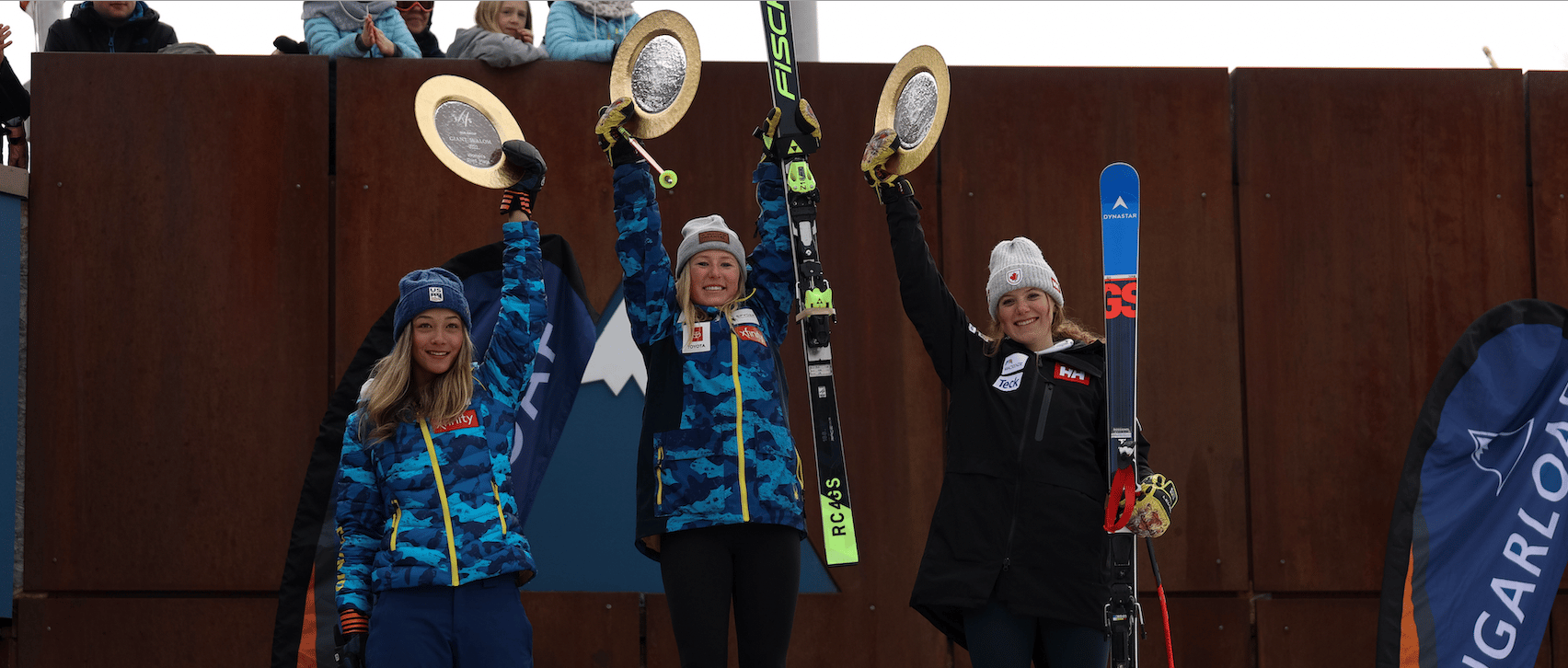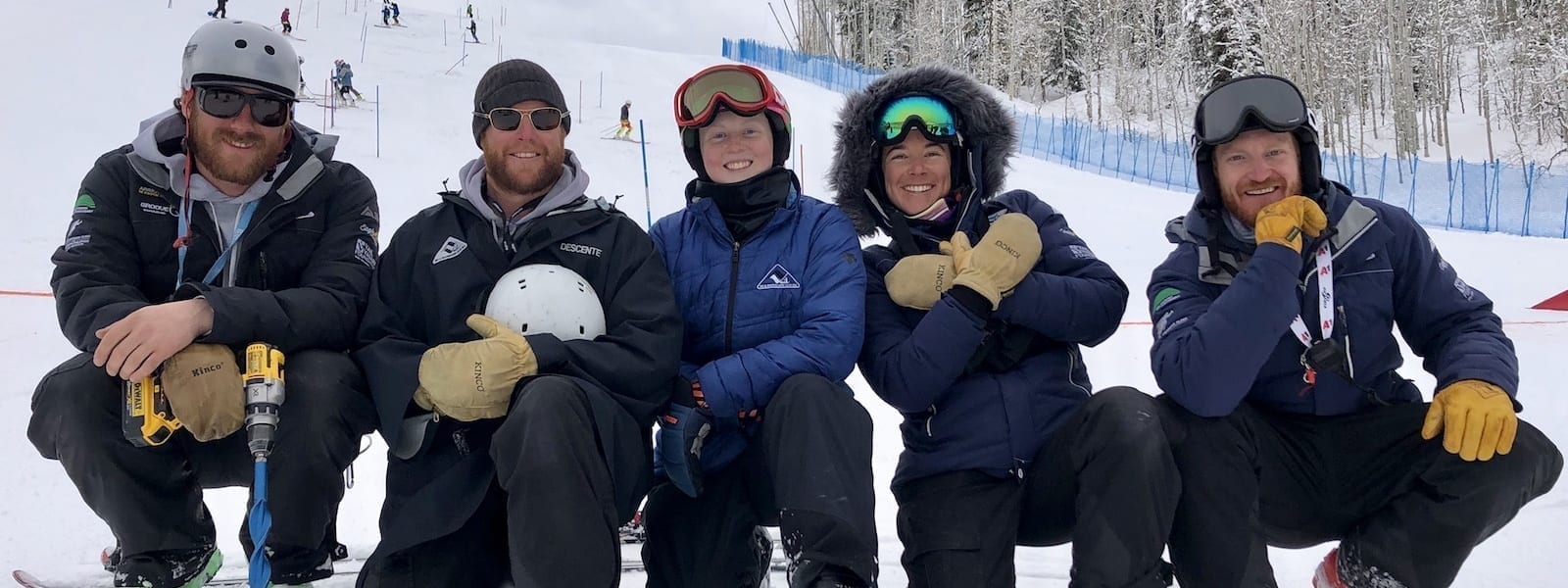Inside the Ski Racing Mind: Competitive Lessons from the World Cup
 Prime Time, the race that is the most important and has greatest competition, toughest terrain, and most difficult conditions, is what ski racing is all about. It’s the reason why you work so hard on all aspects of your skiing. Prime Time is the reason you’re reading my column.
Prime Time, the race that is the most important and has greatest competition, toughest terrain, and most difficult conditions, is what ski racing is all about. It’s the reason why you work so hard on all aspects of your skiing. Prime Time is the reason you’re reading my column.
Prime Time is that moment that defines you as a ski racer. It shows you and others how skilled you are, how well conditioned you are, and, most importantly, how strong you are mentally. My column has been directed toward your achieving Prime Ski Racing, skiing at a consistently high level under the most challenging conditions, and being able to use it in Prime Time.
This notion of Prime Time emerged from my work with one young ski racer who was making a difficult, though successful, transition from high-level junior racing to the World Cup. What became clear to both of us was that the World Cup holds little resemblance to junior racing. The World Cup racers don’t just do things better, they do things differently. These lessons that we learned together helped this racer overcome the challenges of world-class ski racing and progress up the world rankings. They also showed me things that racers at all levels could use to raise their level of skiing and achieve their highest level of ski racing success. These lessons are divided into categories: competitive and mental (I’ll discuss the mental lessons next week).
1. Ski to the best of your ability. In any given race, you may not be at your best. You may not be skiing that well due to fatigue, illness, injury, or any number of reasons. But whatever ability you bring to the race, ski to the best of that ability.
An important lesson I learned from working with world-class racers is that you can’t always ski at 100%. Imagine the life of a World Cup racer. They travel and compete constantly, sometimes going from one side of the world to the other and having to compete the next day. There is simply no way they can be totally on top of their skis for every race.
Many times, before a race, racers just don’t feel very good, and know they’re not going to ski well. Because they’re not going to ski at 100%, they, in essence, throw in the towel before the race even begins. They think, “If I’m not feeling good, there’s no way I can ski well and get a good result. So why even try.”
However, you don’t have to ski your best to get a good result. You only need to ski better than your competition. So, to increase the likelihood of that happening, you must learn to ski your best with what you have on that given day. For example, if you’re only at 80%, ski at the full 80%. That may still be enough for you to get a good result.
2. KISS. Ski racing is really pretty simple. Whoever goes the fastest wins the race. Yet, racers can make ski racing complicated by trying to do too many things. A rule to follow is the KISS principle. Most of racers know the KISS principle as “keep it simple stupid,” but I don’t believe that one. I believe racers should “keep it simple SMART!”
My KISS principle means that you should choose a few basic things you want to do in a race and stick to them. When things aren’t going well, there can be a tendency to think too much and try to find some complex solution to the problem. This approach usually just clouds the situation and makes it worse.
Your goal should be to focus on a few things and do them to the best of your ability. In fact, on race day, the simplest of the KISS principle you should focus on is this: Go as fast as you can.
3. Expect it to be hard. This is one of the toughest lessons for young racers who are making the transition from the juniors to the world-class ranks. As juniors, there are always easy races. Because they are at such a high level, they will often be competing against racers who have much less ability. At the world-class level every race is hard. Each race is one they could lose because their competition is just as good, just as competitive, and just as hungry to win.
Races should be difficult; that is what makes them fun and rewarding. If you ski against a field that you are considerably better than and you win, how do you feel? Not much sense of accomplishment and satisfaction, is there? Races are supposed to be hard. They should be physically demanding. Races should test your technical and tactical capabilities. They should show you what you are made of mentally and emotionally. That is why you compete. This is even more true when you ski in Prime Time.
If you expect it to be hard, then there will be no surprises. If you fall behind after the first run, well, that is part of ski racing. If you choke, well, that happens. If you fight as hard as you can and still don’t get the result you want, well, you can still feel good for having given your best effort. If you expect it to be hard, you will prepare yourself physically and mentally for the demands of ski racing. When the race proves that you were right, it is tough, then you’ll respond well and ski your best.
4. Win the mental race. When you begin a ski race, you actually compete in three races. First, you compete against field in the actual race. Second, you compete against the course, terrain, and snow conditions. Finally, you compete against yourself in the mental race. Your competition has a similar situation. Given fairly equal ability and more or less the same race conditions, whoever wins the mental race will win the actual race.
There are several keys to winning the mental race. Most importantly, you have to be your best ally rather than your worst enemy. If your competition is against you and you are against you, you don’t have a chance. Another key is to never give up. Remember what happens when you give up; you automatically lose. As long as you stay motivated and keep fighting no matter how you’re skiing, you will always have a chance. You must reach and maintain your ideal level of focus and intensity throughout the race. If you learn these lessons from the World Cup, you may not make it all the way to the top, but you can be assured that you’ll leave feeling great satisfaction in your effort. And, in the end, that’s all you can do.
Follow me on Facebook, Twitter, or YouTube.
About Dr. Jim Taylor:
Dr. Jim Taylor knows the psychology of ski racing! He competed internationally for Burke Mtn. Academy, Middlebury College, and the University of Colorado. For the past 25 years, Jim has worked with many of America’s leading junior race programs as well as World Cup competitors from many countries. He is a clinical associate professor in the Sport and Performance Psychology graduate program at the University of Denver. Jim is the author of Prime Ski Racing: Triumph of the Racer’s Mind and his latest parenting book is Your Children are Listening: Nine Messages They Need to Hear From You.
Click here to go to the Inside the Ski Racing Mind Archive





















